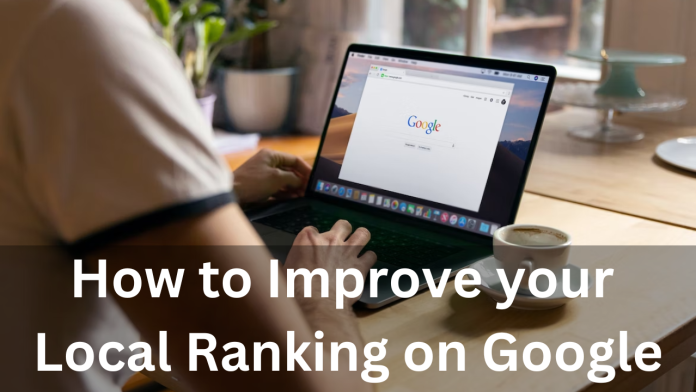Improving your local ranking on Google is essential for any business that wants to attract customers in their area. When someone searches for a product or service, Google shows them local results first. This means that your business needs to be visible in these results if you want to attract local customers. Here are some tips on how to improve your local ranking on Google:
1. Claim and optimize your Google My Business listing:
Google My Business (GMB) is a free tool that lets businesses manage their online presence across Google, including search and maps. Claiming and optimizing your GMB listing is one of the most important things you can do to improve your local ranking. This includes adding accurate and detailed information about your business, such as your address, phone number, hours of operation, and website URL. You should also include photos and videos of your business and respond to customer reviews.
2. Get more reviews:
Reviews are a critical factor in local search ranking, so you should encourage your customers to leave reviews on your Google My Business listing. The more positive reviews you have, the higher you will rank in local search results. You can ask your customers to leave a review by sending them an email or a text message after their visit or purchase. You can also include a link to your Google My Business listing on your website and social media pages.
3. Use relevant keywords:
Keywords are the words or phrases that people use to search for products or services on Google. You should include relevant keywords in your business name, description, and throughout your website. This will help Google understand what your business does and improve your chances of appearing in local search results. However, don’t overuse keywords or engage in “keyword stuffing,” which is when you use too many keywords in your content to try to manipulate search rankings. This can hurt your ranking and make your content sound unnatural.
4. Optimize your website:
Your website is another critical factor in your local ranking. You should ensure that your website is mobile-friendly, has a fast loading time, and includes relevant content about your business. Your website should also have a clear and concise call-to-action (CTA), such as “Call us now” or “Visit our store today.” You should also include your business name, address, and phone number on every page of your website.
5. Build local backlinks:
Backlinks are links from other websites to your website. They are an important ranking factor in Google’s algorithm. You can build local backlinks by creating content that is relevant to your community and reaching out to local bloggers, journalists, and influencers to promote your content. You can also join local business organizations and directories, which can provide backlinks to your website.
6. Use local structured data markup:
Structured data markup is a way to provide additional information about your business to Google. It includes details such as your business name, address, phone number, and hours of operation. By using local structured data markup, you can make it easier for Google to understand your business and improve your chances of appearing in local search results.
7. Be active on social media:
Social media is another way to improve your local ranking. You should create profiles on social media platforms that are popular in your area, such as Facebook, Twitter, and Instagram. You should post regularly and engage with your followers. You can also use social media to promote your products and services, share customer reviews, and advertise promotions and events.
8. Use Google Ads:
Google Ads is a paid advertising platform that lets you display ads in Google search results. You can use Google Ads to target specific keywords and geographic locations, which can help you attract local customers. You can also use Google Ads to promote your products and services, generate leads, and increase website traffic.
9. Monitor and improve your local ranking:
It’s essential to monitor your local ranking regularly to ensure that your efforts are paying off. You can use tools like Google Search Console and Google Analytics to track your ranking, traffic, and engagement. You should also monitor your online reputation and respond to customer reviews promptly. If you notice that your ranking has dropped, you can adjust your strategy, such as by creating more content, improving your website speed, or getting more backlinks.
10. Stay up-to-date with local SEO best practices:
Local SEO is constantly evolving, so it’s important to stay up-to-date with the latest best practices. You can do this by reading industry blogs, attending conferences and webinars, and following Google’s guidelines. You should also keep an eye on your competitors and see what they are doing to improve their local ranking.
In conclusion, improving your local ranking on Google is critical to attracting local customers and growing your business. By claiming and optimizing your Google My Business listing, getting more reviews, using relevant keywords, optimizing your website, building local backlinks, using local structured data markup, being active on social media, using Google Ads, and monitoring your local ranking, you can improve your chances of appearing in local search results and increasing your online visibility.
